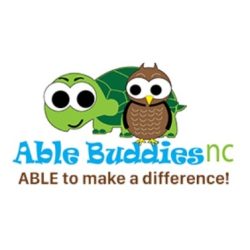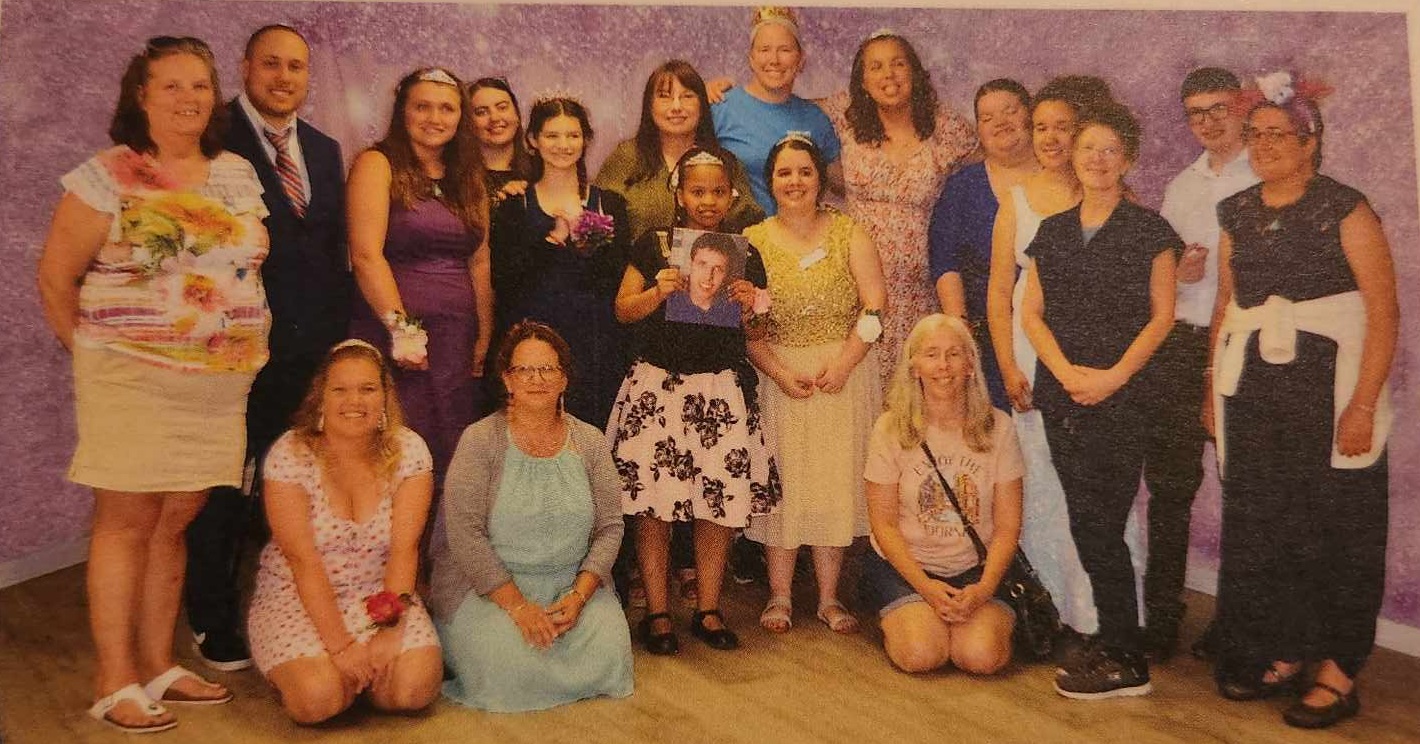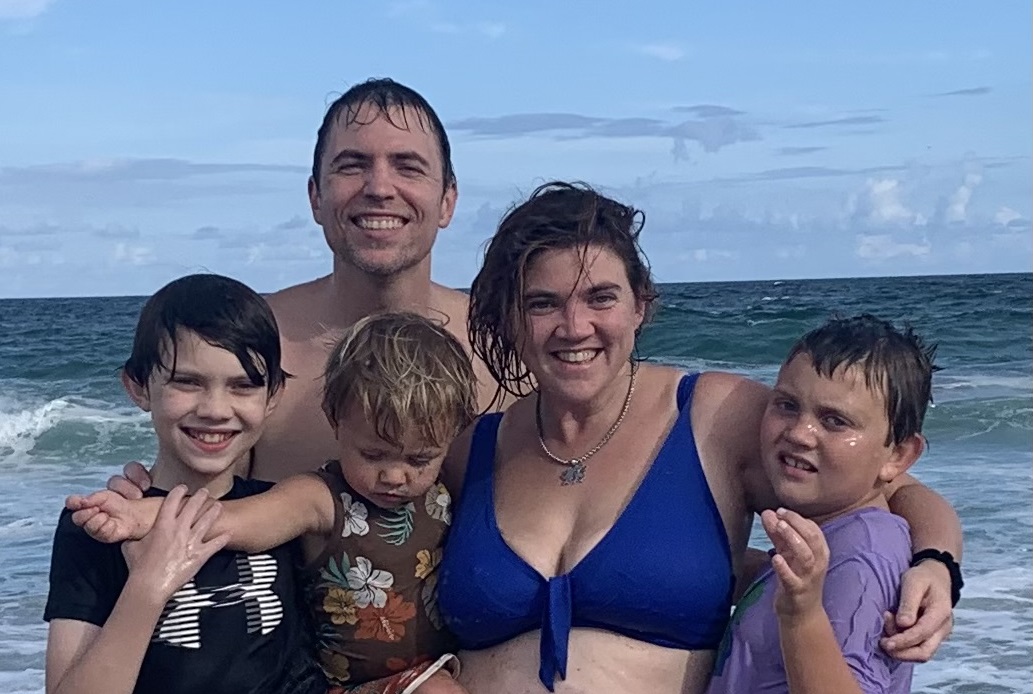At Able Buddies NC, community and connection are at the heart of everything they do. One of the most cherished and impactful offerings of the organization is its Family and Friends Nights—a series of social events that bring together individuals with intellectual and developmental disabilities (IDD), their families, and their friends. These nights provide an opportunity for meaningful interaction, celebration, and support, while fostering a sense of belonging and inclusion for all participants.
What Are Family and Friends Nights?
Family and Friends Nights are special social gatherings hosted by Able Buddies NC that create a fun, safe, and inclusive environment for individuals with IDD and their loved ones. These events are designed to offer a chance for individuals to socialize, build relationships, and experience a sense of community. They also provide a much-needed space for family members and friends to connect, share experiences, and support one another in a relaxed, welcoming atmosphere.
These nights often feature a variety of activities that encourage participation from all ages and abilities. Whether it’s a themed party, a game night, or a simple gathering with music and refreshments, Family and Friends Nights are about bringing people together to enjoy each other’s company and celebrate the unique qualities that make each individual special.
Why Are Family and Friends Nights Important?
- Creating a Supportive Community
Family and Friends Nights offer families the opportunity to meet others who are going through similar experiences. For many families of individuals with IDD, these events are a vital support network, providing a space to share stories, advice, and resources. The social nature of these events encourages both individuals with disabilities and their loved ones to form meaningful connections with others in the community. By fostering these relationships, Able Buddies NC helps to break down feelings of isolation and create a broader support system for everyone involved. - Promoting Socialization for All Ages
Social interaction can sometimes be a challenge for individuals with IDD, particularly if they don’t have access to inclusive social events. Family and Friends Nights create a space where everyone—regardless of age or ability—can engage in fun, interactive activities. These events help participants develop important social skills, build friendships, and practice communication in a supportive and non-judgmental environment. For many attendees, these nights provide an invaluable opportunity to experience what it feels like to be part of a group and be celebrated for who they are. - Strengthening Family Bonds
For families of individuals with disabilities, the journey can be full of unique challenges. Family and Friends Nights offer an opportunity to relax, have fun, and spend quality time together. These events encourage families to step away from the daily grind and focus on creating joyful memories in a supportive environment. Parents, siblings, and extended family members can enjoy a night out, free from worries, while watching their loved one engage in activities and make new friends. This sense of togetherness is critical for the emotional well-being of all family members. - Encouraging Inclusive Recreation
Able Buddies NC’s Family and Friends Nights emphasize inclusivity in every aspect of their planning. The events are designed to ensure that individuals with varying abilities can fully participate in the activities. Whether it’s games, or a focus on creating a welcoming atmosphere, every detail is carefully considered to ensure that no one feels left out. This inclusive approach makes it possible for everyone to experience the joy and sense of belonging that comes with being part of a community. - Raising Awareness and Advocacy
Family and Friends Nights also serve as a platform for raising awareness about intellectual and developmental disabilities. These gatherings provide an opportunity to educate the broader community about the importance of inclusion, empathy, and support. As families and individuals share their stories, they help to break down misconceptions and promote a greater understanding of the challenges faced by those with IDD. The more people learn, the more they can advocate for changes that benefit the entire community.
The Fun and Connection of Family and Friends Nights
Each Family and Friends Night at Able Buddies NC is designed with fun in mind. From movie nights and dance parties to arts and crafts, the activities are diverse and cater to a wide range of interests and abilities. These nights often feature:
- Themed Events: Whether it’s a holiday celebration, a seasonal gathering, or a fun theme like a “Superhero Night” or “80s Throwback,” themed events add an extra layer of excitement and creativity to the evening.
- Games and Competitions: Various games and team challenges encourage friendly competition and collaborative play, helping participants bond and engage with one another.
- Music and Dancing: A DJ can bring an energetic vibe to the event, with dancing being a favorite activity for many attendees.
- Crafting and Creative Stations: These stations allow individuals to explore their artistic side, whether they are painting, making jewelry, or crafting holiday decorations.
- Food and Refreshments: Nothing brings people together like shared meals and snacks. Able Buddies NC ensures that there’s plenty of delicious food and drinks for everyone to enjoy.
A Lasting Impact on Families
The impact of Family and Friends Nights extends far beyond the events themselves. These gatherings provide families with precious memories and a stronger sense of community, which can last long after the night has ended. Families often leave these events feeling more connected—not just to the Able Buddies NC community, but to one another as well.
In addition to providing immediate enjoyment, Family and Friends Nights contribute to a broader sense of inclusion and advocacy. As individuals with IDD, their families, and their friends come together, they create a ripple effect that spreads understanding and acceptance throughout the local community. By fostering these relationships and promoting inclusivity, Able Buddies NC is helping to build a world where everyone can experience the joy of connection, regardless of ability.
How to Get Involved
If you’re interested in attending or supporting Family and Friends Nights, Able Buddies NC encourages families, friends, and community members to get involved. Whether you are a family looking for a supportive and fun environment for your loved one with IDD, or a volunteer who wants to help facilitate these joyful evenings, there are plenty of opportunities to be part of this inclusive, welcoming community. Keep an eye on Able Buddies NC’s website and social media for updates on upcoming events and ways to participate.
Conclusion
Family and Friends Nights at Able Buddies NC are a shining example of the power of connection. Through these events, individuals with intellectual and developmental disabilities, their families, and friends are given the chance to socialize, have fun, and build lasting relationships in a safe and supportive environment. These nights not only foster friendships but also promote a sense of belonging and inclusion for all. In a world that often overlooks the importance of community, Able Buddies NC is leading the way in creating spaces where everyone can come together and celebrate one another.



